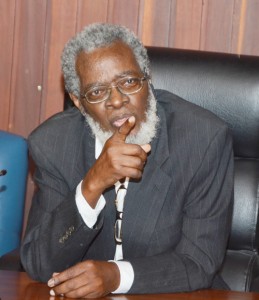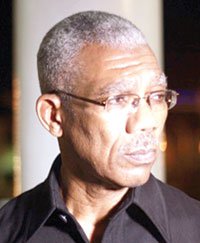By Svetlana Marshall

Dr Roger Luncheon
The Guyana Government on Wednesday said that a minority Government may be a permanent feature in the country and urged politicians and other stakeholders to strive to make it work rather than opposing it.
Cabinet Secretary Dr Roger Luncheon’s comments came in the wake of the ruling People’s Progressive Party/Civic (PPP/C) announcing on Monday that it was seeking a national front alliance.
After several years, the PPP/Civic lost its majority to the combined Opposition – A Partnership for National Unity (APNU) and Alliance For Change (AFC) at the 2011 elections. In the National Assembly, the party has found it very difficult to pass key legislation as a result.
Order of the day
Speaking at his weekly news conference, Dr Luncheon said minority Governments have become the order of the day in many countries across the globe. He opined that it could very well become a feature of Guyana’s political life.
“In essence, minority Governments seem to be here to stay and the emphasis, perhaps, need to be more on making minority Governments work as opposed to preventing minority Governments,” he told reporters at his Office of the President briefing.
Alluding specifically to the current political climate, Dr Luncheon said since the AFC submitted its No-Confidence Motion to the National Assembly against the Donald Ramotar Administration, political activities on the ground have surged.

David Granger



